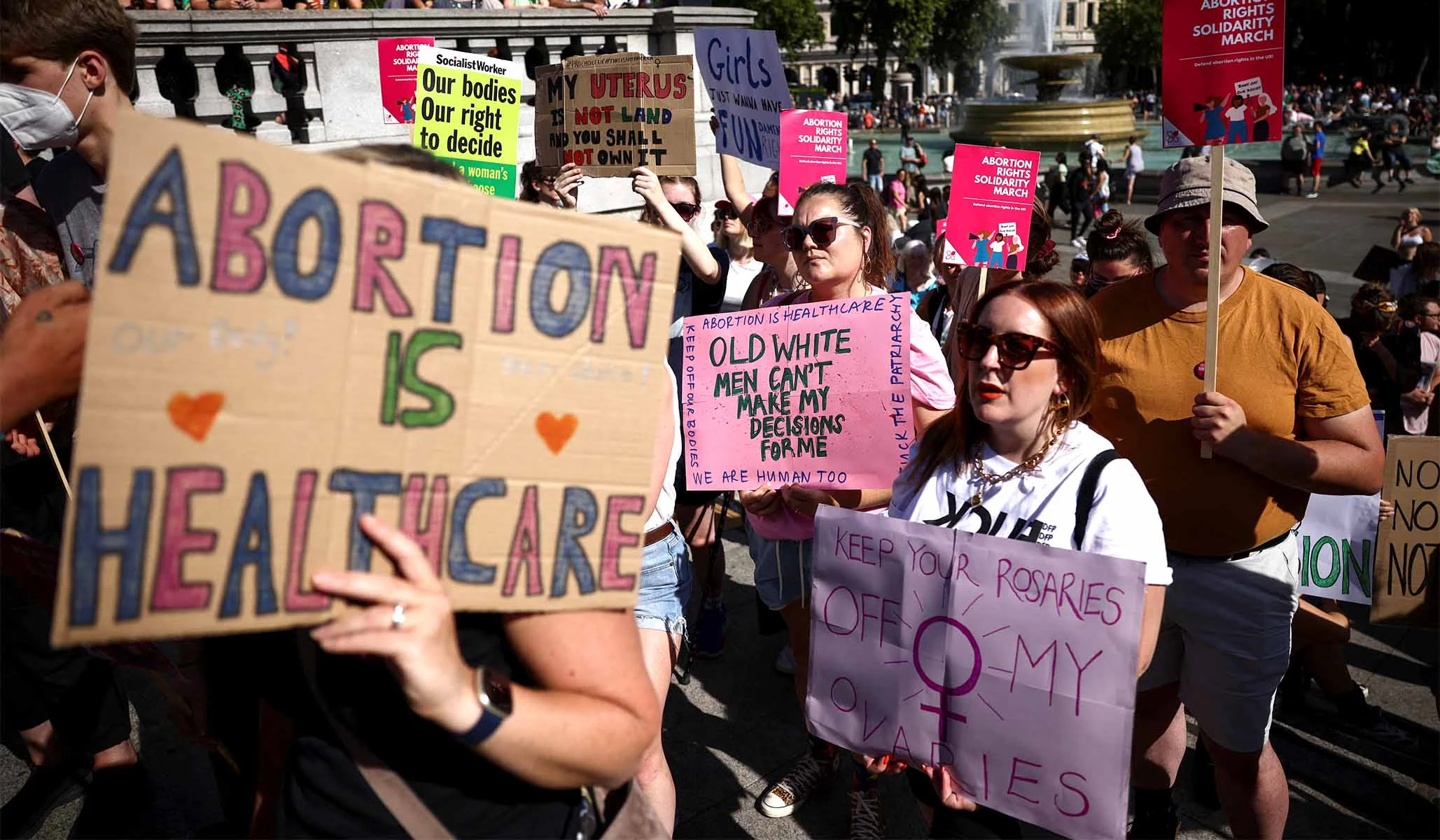Abortion law in the United Kingdom is not framed in terms of rights, but rather in terms of exceptions. The 1967 Abortion Act legalized abortion provided by registered medical practitioners under specific circumstances. Although the law amended the preexisting abortion ban, it did not repeal it. If the necessary conditions are not met, then abortion remains a criminal offense under the 1861 Offences against the Person Act, which is technically punishable by up to life imprisonment.
The exceptions have become so permissive that they accommodate most abortions anyway, allowing the British to retain a veil of civility around abortion. Abortion, they maintain, is a necessary (if regrettable) procedure administered at the discretion of medical professionals.
Before 24 weeks, abortion is permissible so long as two registered medical practitioners are of the opinion that the pregnancy poses a “risk of injury to the physical or mental health of the pregnant woman.” This effectively works out as abortion on demand. After 24 weeks, abortion is allowed only if two practitioners are of the opinion that there’s a “risk to the life of the pregnant woman, greater than if the pregnancy were terminated,” or “a substantial risk that if the child were born it would suffer from such physical or mental abnormalities as to be seriously handicapped,” which includes conditions such as Down syndrome, clubfoot, and cleft palate, or that it is “necessary to prevent grave permanent injury to the physical or mental health of the pregnant woman.”
During the coronavirus pandemic, temporary measures were introduced in England, Scotland, and Wales allowing for access to pills inducing early abortions through the tenth week of pregnancy. The pills could be taken at home after a phone consultation with a medical practitioner.
However, there are some obvious risks associated with this, including the physical risk of an undiagnosed ectopic pregnancy, the psychological risk when coercion by a partner or family member has gone undetected, as well as the legal risk of making a false statement about which trimester one is in.
A recent case involving Carla Foster, age 44, highlights the risks of these temporary measures. In 2020, Foster told the British Pregnancy Advisory Service she was around seven weeks pregnant when she was in fact well into her third trimester. She was aware of that fact, as evidenced by her Google searches on how to induce a miscarriage or get an abortion past six months’ gestation. Foster consumed the drugs mifepristone and misoprostol provided by the National Health Service; shortly thereafter, her daughter, to whom she gave the name Lily, was born dead. Attempts at resuscitation at her home failed. A post-mortem examination indicated that Lily was between 32 and 34 weeks’ gestation.
Foster broke the law and was sentenced to 28 months’ imprisonment for the crime of “child destruction.” She will serve only half of that sentence in custody. The sentence has been met with a predictable outpouring of outrage and advocacy for full decriminalization of abortion. A great deal of focus has been on painting Foster as vulnerable and in need of “compassion” (i.e., a noncustodial sentence).
It’s true that it is often very desperate people who seek out late-term abortions, but the same is true of women who commit infanticide. Nobody seems to be arguing that they shouldn’t be held accountable for their actions.
Abortion laws in the U.K. are inconsistent. If Foster’s baby had Down syndrome, she would have been eligible for an abortion up until birth. If she had followed the official protocol, she may even have found two doctors willing to say that having the baby would cause “grave permanent injury” to her mental health.
What’s being debated here isn’t whether abortion ought to be legal in all nine months of pregnancy — frankly, it already is. The question is whether it ought to be regulated by medical professionals or whether, under decriminalization, it ought to be effectively deregulated. Then, pretenses of civility will not be possible: abortion at any stage, for any reason, even carried out at home.
In his sentencing remarks, Justice Pepperall deemed the letter he received signed by various British medical authorities on Foster’s behalf to be inappropriate. He pointed out that his job is to apply the law. Changing the law is Parliament’s job. He might have further added that regulating abortion — so that situations like Foster’s are avoided — is supposedly their job too.

